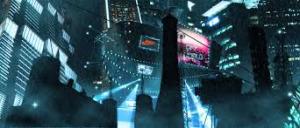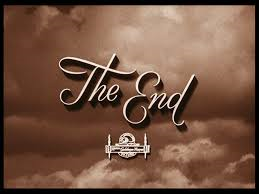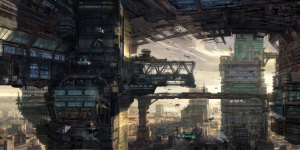Posted: 7 June 2014
“We shall shortly be landing in Dystopia. Please fasten your seatbelts and put your seats back in the upright position, thank you”
One of the most enduring subgenres of modern SF is Dystopia. The definition refers to a bleak future while the name itself is derived from a classical past, i.e. Ancient Greece. “Topos” is place, while “dis” is bad – thus, we are alluding to a “bad place” (as opposed to a “utopia” which is a good place). One of the solutions to avoid an impending dystopia – as divulged in countless SF tales – is an evacuation from Earth to colonise a planet compatible with ours.
Among the leading proponents of this view include: The Space Merchants (1953) by Frederik Pohl and Foundation (1951) and End of Eternity (1955), both by Isaac Asimov. On the big screen, this idea was last used in Oblivion.
The main problem with dystopian movies now concerns not only their monotonous rate of production, but their contents have lost their shock value; with mass unemployment, debt, climate change and a whole host of other assorted crises, Dystopia is a fast encroaching reality.

“Few writers can take much satisfaction in unrelenting pessimism, and only the most embittered have been content to paint the future utterly black… but many people have tried to map escape-routes from Dystopia” – Brian Stableford.
One cannot help but be reminded of the scene in Blade Runner (1982) where skyships blurt out: “the chance to start again” with “opportunity and adventure.” That sounds even more tempting now; stop the world, this bunny wants to escape to those “Off-World Colonies”! Eerily enough, we’re only five years shy of the date in which Syd Mead’s rain-soaked neon-lit futurescape is brilliantly realised; and we can see with the utmost dread that this Dystopia (once as far-off as it was doom-laden) looks too darned accurate.
Another way to avoid a dystopian outcome would be to forsake modern technology and all the addictive urges which it creates. You’re telling me! Having to deal with superslow and unreliable software has undoubtedly been the bane of my work, as of late, and the reason why this particular Post was not published last Friday. Grrrr…
Yet during the post-war regeneration, the acceleration of technology was greeted by social analysts as one of the factors in attaining a better life. This might be the case for the majority of the now-gen who seemingly cannot exist without a smartphone, but for this older hack, the urge to lob this laptop outta the window appeals…

“… If you take from it what I hope you will take from it, it will make you think a little more pungently about the political environment you live in and not be complacent” – Donald Sutherland (on The Hunger Games).
A Post on this particular subject would not be complete without mentioning the phenomenal success of The Hunger Games. As Followers of this Blog will know, (part of) this movie was viewed only during a long-distance flight and it did not make for pleasant viewing. Once past the utterly absurd and pessimistic premise, the turgid script and the lame lead actors detracted my attention; left glum and disenchanted, the Off button has rarely felt so good. All circus, and no bread.
At first glance, it seems perplexing as to how and why so many teens embrace this stuff. Actually, the concept of brutal factionalised worlds governed by authoritarian entities is basically high school, opined one critic. The mash of Dystopia and oppressed younglings has been a literary combination, long before it became a twinkle in Suzanne Collins’ eye.
Donald Sutherland, the veteran star who played President Coriolanus Snow, described in one article as “a tyrant’s tyrant, with basilisk malevolence,” viewed The Hunger Games as essentially politically allegorical, offering a “coded commentary” on inequality, power and hope.
In conclusion, despite the fast and frenetic rate of technological development, instead of creating a greater, more fulfilling, society, we suddenly find ourselves nestled in the glum dystopia of our own misguided making.
That’s enough depressing futures for now – a preferable alternative would be to spend the rest of the evening on Youtube watching cute bunnies falling over.
Goodnight, sleep tight.



The only dystopian novel i have read is Divergent…Loved the movie too….
Nice thought Brad…..
Donald Sutherland certainly has the presence to play a tyrant.
but what is he doing in this movie? He deserves better than this! Thanks for Liking my Posts. Excellent piece on th Lighthouse of Alexandria btw
Cheers!